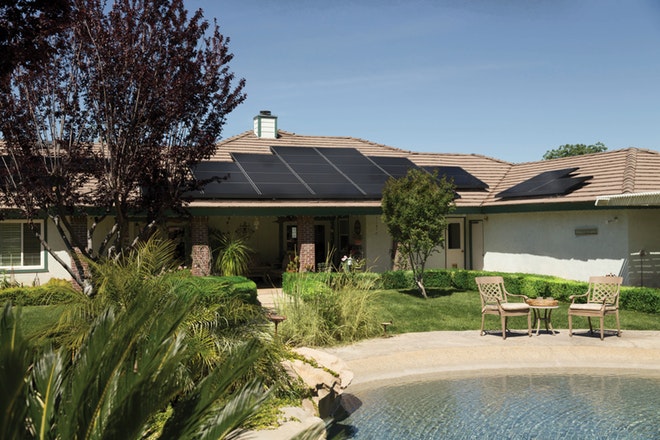When comparing assisted living vs nursing home care, both are good options for older people who want to maintain their health. From level of care to services, amenities, and costs, this guide will help you make the best senior care decision.
If you are finding some long-term care options for your aging parents suffering from a broken hip, stroke, or any other medical condition, assisted living and nursing homes are the best options. But choosing which care option is best for older adults can be overwhelming sometimes. Knowing the unique care needs you require for your loved ones will make it easier to decide which one is the right choice.
If you are looking for some long-term care options for your parents who need assistance with daily activities but require varying levels of care, then it is important to clearly know the difference between assisted living and a nursing home. Both types of facilities play an essential role in the continuum of care, but they cater to different needs. So, understand the differences between assisted living vs. nursing home care and what the similarities are.
Assisted Living vs Nursing Home Care – Are They the Same Thing?
Assisted living and nursing home care are the two different senior level care facilities, providing essential care for older adults to improve their quality of life. Keep in mind that both facilities have different levels of need. Assisted living facilities are provided in a residential environment, helping seniors to get assistance with everyday living tasks. While nursing facilities provide a more robust medical environment, offering round-the-clock medical care for aging seniors.
Nursing home facilities and assisted living care offer similar services and levels of care, the difference lies in the type of care and costs. Nursing homes usually meet the needs of higher-need residents, while assisted living facilities are the best option for lower-need residents. Understanding the similarities and differences between the two services will help you understand how to choose a care home for your loved ones.
Assisted Living vs Nursing Home – Which One is Better?
Keep in mind that assisted living and nursing home care both facilities are different from each other and you can’t say that one is better than the other.
What is Assisted Living?
Assisted living is exclusively designed for older adults who are able to maintain some level of independence but need assistance with activities of daily living. Assisted living facilities provide personal care services to seniors who need help with daily tasks, such as bathing, eating and medication management. These individuals do not require the 24/7 medical care and constant supervision provided in a nursing home.
Care in an assisted living facility is provided by licensed practical nurses (LPNs) and nurse assistants, provided under the supervision of a registered nurse. Senior adults will have access to a range of amenities such as social activities, restaurant-style dining environment, happy hours and living accommodations than a care facility in a hospital or medical environment.
What is a Nursing Home Facility?
Nursing homes are designed for individuals with significant medical or physical needs who require an advanced level of care. These facilities provide continuous care and medical supervision from skilled professionals, such as registered nurses (RNs), therapists, and physicians.
Unlike an assisted living facility that provides care in a residential setting, a nursing home provides a high level of medical care in a clinical setting. Keep in mind that medical care is provided by a trained registered nurse under the supervision of a doctor. It ensures that your loved ones will get the same level of medical care you will find in a hospital.
The goal of nursing homes is to help aging seniors resume their health so that they can go back home. People in skilled nursing facilities are admitted because of an injury, accident, chronic illness, or surgery and they need continuous care for a specific period of time until they fully recover. These people require the same level of care received in a hospital, but not in a hospital setting. Most adult family homes and skilled nursing facilities provide specialized care such as physical therapy, speech therapy and occupational therapy.
Why Should You Choose Assisted Living?
If your aging parents need extra support, choosing an assisted living facility is a sensible approach to provide them with a happier, engaged and more independent lifestyle. Here are some benefits of choosing assisted living for older adults.
Independence and Necessary Assistance
Offering support and independence are the two main goals of assisted living facilities. Professionals ensure that they maintain a perfect balance between support and independence. Many residents can live in private apartments or rooms and participate in social activities, while still having access to assistance when needed.
Social and Recreational Opportunities
These facilities offer a variety of social activities, events, and recreational programs, promoting a sense of community and preventing feelings of isolation, which is vital for mental and emotional well-being.
Supportive Environment for Mild Health Needs
Assisted living is ideal for individuals with chronic health conditions or mild cognitive impairments (such as early-stage dementia) who don’t require extensive medical care but need help with daily tasks. This allows them to maintain a higher level of functionality and quality of life.
A Cost-Effective Option
Assisted living is a cost-effective facility than nursing home facilities. It is a great fit for individuals who don’t require intensive medical care. The best part about this facility is that it offers a more personalized living arrangement to older people without paying higher medical care costs that you need to pay when choosing nursing homes.
Personalized Care Plans
One of the best reasons to choose assisted living for your aging parents is personalized care plans. The care provided for assisted living is exclusively tailored to the person’s specific needs. Personalized care plans ensure that everyone gets the right level of care and support.
Why Should You Choose Nursing Home?
Skilled nursing facilities offer advanced levels of care compared to assisted living facilities. People who need special care find nursing homes a better fit for them. However, people who need support and general assistance for their daily activities are a great fit for assisted living facilities. Nursing home facilities offer advanced levels of medical care by trained and certified staff, including registered nurses and nursing assistants. Some benefits of nursing homes include:
24/7 Medical Care
Nursing homes are the right fit for individuals who require constant medical care. People with chronic conditions, disabilities, recovery from surgery, or advanced stages of illness (like Alzheimer’s or other serious medical conditions). Healthcare professionals are present 24/7 to provide care and deal with medical emergencies.
Post-Surgical and Rehabilitation Services
Nursing homes provide short-term care for individuals recovering from major surgery, health conditions, accidents or any sudden injury. Nursing professionals are equipped to help people regain their strength and independence. If needed, they provide physical, occupational, and speech therapy to improve their quality of life.
Comprehensive Medical Monitoring
People with chronic illnesses such as diabetes, heart disease, or advanced dementia require continuous medical monitoring. In addition to helping with daily tasks, nursing home residents receive regular medical assessments. It ensures their medical needs are continuously met.
Safety and Security
When it comes to providing high levels of safety to older people, nursing homes are the best option. These facilities are equipped to handle the needs of residents who have limited mobility or require assistance. It ensures a safe environment for those with complex health concerns.
Care for Severe Cognitive Impairment
Nursing homes provide specialized care for individuals with advanced cognitive impairments, such as late-stage dementia or Alzheimer’s disease. They offer medical environments, necessary safety measures and supervision to deal with such people.
Assisted Living vs Nursing Home: Major Differences
| Feature | Assisted Living | Nursing Home |
|---|---|---|
| Level of Care | Assistance with daily living activities (ADLs) such as bathing, dressing, eating, and medication management. | 24/7 medical care and skilled nursing services. |
| Medical Supervision | Limited medical care; residents generally do not require extensive medical support. | Comprehensive medical and nursing care; suitable for individuals with severe medical conditions. |
| Staffing | Staff available during the day and night, but typically not medically trained. | 24/7 staff, including registered nurses and medical professionals. |
| Cost | Generally, it is a more affordable facility than nursing homes. | Comparatively costly than an assisted living facility due to advanced levels of medical care. |
| Living Environment | More independent living arrangements, such as private or semi-private apartments. | Rooms typically shared or private, designed for medical needs. |
| Residents’ Needs | For people who need help with ADLs but are otherwise independent. | For individuals with major health concerns, disabilities, or advanced conditions that require constant medical care. |
Assisted Living vs Nursing Home – Why Do You Need Them?
At some point in our lives, most of us will need long-term care services. According to the U.S. Administration of Aging, there is a 70% probability that people aged 65 and older need long-term care services in their lives. This is why the demand for long-term care services is rising, especially among older people or those with low health quality and socioeconomic status. Both assisted living and nursing homes provide essential care for different groups of people, and choosing between them depends on the individual’s health needs and preferences. If you have an aging parent and you are wondering which facility is the better fit for them, here are some important points that help you realize the importance of both facilities.
Personalized Care
Both types of services ensure that individuals receive the appropriate level of care based on their specific medical and personal needs, whether that’s help with daily tasks or constant medical supervision.
Safety and Well-being
These facilities offer environments that are structured to ensure the safety of residents, preventing accidents and providing immediate assistance in case of emergencies.
Emotional Support
Both offer social and recreational activities to enhance residents’ quality of life and help prevent feelings of loneliness or isolation.
Relief for Family Caregivers
Long-term care facilities bring peace of mind among family caregivers, allowing them to step back from their care duties as their loved ones are getting professional medical care.
Health Management
Skilled nursing homes offer consistent medical supervision, ensuring chronic illnesses and medical emergencies are managed appropriately and preventing any health crises.
Assisted Living vs Nursing Home Care – Cost
When considering long-term care options for aging loved ones, the cost is one of the most important factors to consider. According to the American Health Care Association report, the average cost of nursing home care is approximately 2x, compared to the cost of assisted living residence.
On average, annual costs for nursing home care can range from $89,000 to $100,000 or more for a semi-private room. However, an assisted living facility costs on average $42,000 to $60,000 per year. Understanding the costs of these two facilities is essential when choosing the best care homes for long-term care.
Assisted Living vs Nursing Home: How to Choose the Right Option?
Choosing the right long-term care option (assisted living facility or nursing home care) for a loved one is a long process that requires research and planning. By assessing care needs, researching facilities, evaluating the environment, and understanding costs, you can make a well-informed decision that ensures your loved ones will get the best possible care and improve their quality of life.
It’s recommended to consider some important factors to ensure older adults receive the right level of care and support in a comfortable and safe environment. When it comes to choosing the right long-term care option for your loved ones, keep in mind the following points:
- Carefully assess the level of care your loved one requires.
- Research all the available facilities in your area.
- Evaluate the facility’s location to ensure regular visitation.
- Ensure all staff members are professional, trained and certified.
- Asses the physical environment of a facility.
- Check whether they offer social, educational, and recreational activities.
- Ensure the facility provides the level of personal care your loved one needs.
- Check for availability of physical therapy, occupational therapy, and medication management.
- Understand costs and payment options.
- Tour the facility to get a better idea of how the environment feels.
- Speak to current residents and families.
- Does the facility have an emergency plan in place for medical emergencies.
Choose a facility where you feel confident your loved one will be treated with care, respect and compassion.
The Bottom Line
The importance of long-term care services lies in their ability to provide specialized care that allows elderly or disabled individuals to live as comfortably and independently as possible. The goal of these facilities ensures that the health and well-being of seniors are appropriately managed. Assisted living facilities are usually homier, providing seniors with minimal care so they can retain as much independence as possible. These facilities provide older adults with their own room and support an open community atmosphere. However, nursing homes are designed for people who need care, support and supervision 24/7.
Whether it’s assisted living for those seeking help with daily tasks or nursing homes for those with more complex medical needs, both types of facilities play critical roles in providing dignified, compassionate care for vulnerable populations.






